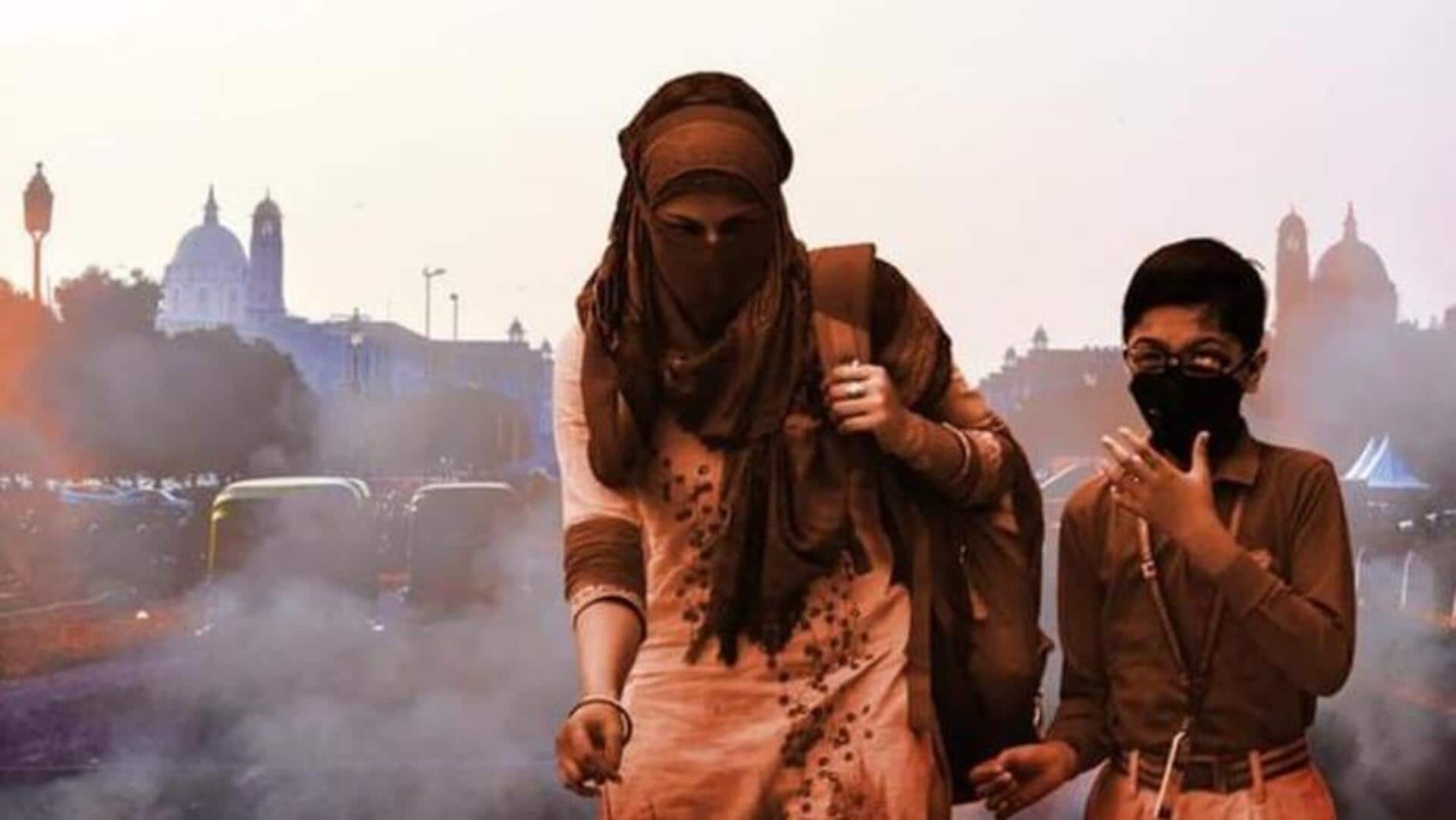
Delhi's air quality remains 'very poor' despite government efforts
What's the story
Delhi and the surrounding National Capital Region (NCR) grappled with "very poor" air quality for the third consecutive day on Monday.
The air quality index (AQI) in Delhi was at 322 while, in Noida, it was 324, as per the System of Air Quality and Weather Forecasting and Research (SAFAR).
This development came even as the Aam Aadmi Party (AAP) government launched an action plan and several campaigns to curb air pollution in the national capital.
Context
Why does this story matter?
Delhi is the most polluted city in India, and a recent report revealed that Delhiites lose 11.9 years of their lives due to toxic air.
With the festival of Diwali around the corner, Delhi and neighboring regions are on high alert. On October 10, the Delhi Pollution Control Committee (DPCC) announced a complete ban on the manufacturing, storage, and sale of firecrackers till January 1.
Delhi also braces itself for the problem of smog—a toxic mixture of smoke and fog.
Details
Latest average AQI levels in Delhi, neighboring areas
On Sunday evening, Delhi's average AQI was 322, while Noida and Gurugram recorded 324 and 314, respectively, all falling under the "very poor" category.
Delhi Environment Minister Gopal Rai urged the central government to enforce a ban on buses using low-quality diesel in the NCR regions of Haryana, Uttar Pradesh, and Rajasthan.
Earlier, Delhi Chief Minister Arvind Kejriwal unveiled a 15-point action plan to combat air pollution during winter.
Information
Understanding AQI scale
To note, an AQI between 0-50 is considered "good," 51-100 as "satisfactory," 101-200 as "moderate," and 201-300 as "poor." An AQI level ranging between 301-400 is considered "very poor," 401-500 as "severe," and above 500 as "severe plus."
What Next?
Delhi's Winter Action Plan
Delhi's Winter Action Plan, earlier introduced by CM Kejriwal, aims to tackle pollution caused by vehicles, biomass burning, and other activities.
Last week, the AAP government also launched the "Red Light On, Gaadi Off" campaign, which encourages drivers to turn off their engines while waiting on traffic signals to save fuel and reduce vehicular emissions.
On October 21, the Delhi government also invoked Stage II of the Graded Response Action Plan (GRAP), a set of anti-pollution measures, as AQI worsened.
ban
Diesel generators banned in Delhi-NCR
Moreover, from October 1, diesel generators (DG) in the Delhi-National Capital Region (NCR) were banned, leaving residents and apartment representatives worried about the financial and logistical challenges.
The Commission for Air Quality Management (CAQM) ordered DGs be changed to dual fuel mode (diesel+gas) and install retrofit emission control devices (RECD) to reduce particulate matter (PM) pollution.
However, residents have been struggling with the costs, limited availability of conversion kits, and time constraints for the transition.
Medical Tourism
Air pollution hits India's medical tourism
A 2022 report highlighted that medical tourism companies in the country were receiving queries from international tourists regarding the poor air quality in northern India. It noted they were also skeptical about visiting India due to the pollution.
The Ministry of Commerce and Industry had previously highlighted this concern.
This issue facing the industry was also recognized by the Services Export Promotion Council (SEPC).